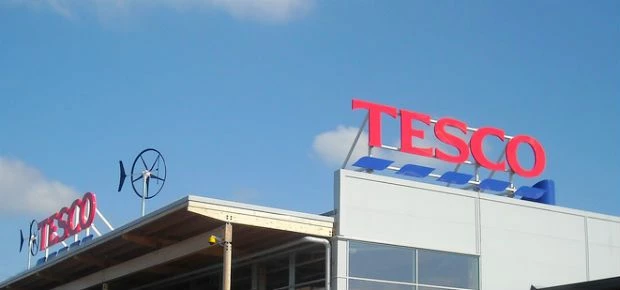
Partner Article
The bigger they are, the harder they fall
Back in 2011, one in every seven pounds in the UK was spent in Tesco. As the world’s third largest supermarket group, with more than 330,000 staff working in 3,146 stores (2013), Tesco didn’t only dominate the UK; with stores in 12 countries and more than 27 million clubcard holders abroad, the supermarket giant seemed untouchable.
Tesco had a reputation for adaptability and responsiveness; it was the first the release a “value” range in the during the recession in the early 90s, allowing the brand to grow larger than Sainsbury’s by 1996.
Fast forward two decades and Tesco has suspended four of its executive team, including its UK managing director after an accounting indiscrepancy resulted in the miscalculation of its profits forecast by £250 million.
The company’s shares immediately took a hit, as share value slumped 11% in early trading this morning. Tesco’s stock price is currently down 43% on last year.
This isn’t the first misfortune suffered by Tesco this year; in April, the supermarket reported a fall in pretax profit of 6.9%, with like for like sales falling 3% between February and April of this year.
A study carried out by The Grocer magazine in August revealed Tesco as the third most expensive supermarket in the UK after high-end retailers Waitrose and Sainsbury’s.
According to ONS research, UK supermarkets have been dramatically cutting prices to compete with low-cost European retailers Lidl and Aldi.
The ONS said: “While the July 2013 figure was high … the fall in the amount spent in July 2014 suggests that prolonged discounting and price wars were having an effect on overall sales,”
Bradford’s Morrisons is also suffering, with a decrease in pretax profit of £105 million on last year. Leeds-based Asda is also under-pressure due to industry changes and price wars.
This brings us to question: how are the European supermarkets so cheap and why are our UK chains struggling to keep up?
According to research by Nielsen Holdings NV, 51% of British shoppers visited Aldi or Lidl in May 2014 - compared to just 37% in 2011. This was the same period in which Tesco saw a 3% sales dip - hardly a coincidence.
European discount retailers like Lidl and Aldi don’t rely on branding or heavy marketing, like their British counterparts, rather they focus on sourcing seasonable, cheap produce. Aldi is famous for paying its staff well-above average wage, with store managers starting on £34,750, compared to £22-28,000 at Tesco.
As the pound continues to strengthen, importing costs reduce allowing the European supermarket chains to sell unbranded produce for less than British supermarkets are selling its value ranges. As Aldi has no in-house brand, it often puts competing brands next to each other on its shelves, thus increasing competitivity between brands.
In addition, the European supermarkets function on minimal staff and the stores are incredibly basic. Without the likes of cafes and toilets, the chain doesn’t have to shell out for extra staff to maintain these facilities. The stores also have shorter opening hours, with most large Tesco stores being open 24 hours, and therefore save on electricity and staff costs. Aldi was also one of the first supermarkets to charge for plastic bags, encouraging customers to reuse old bags or purchase ‘bags-for-life’.
In conclusion, British supermarket chains are under great pressure from customers to cut costs and lower prices. Aldi has vowed to double its store portfolio in the next seven years, giving more choice and thus bringing its low-price, high-value products to the doorsteps of the budgeting consumer. Tesco must return to its roots as a responsive and innovative chain in order to retain its grip on the country’s purse strings.
This was posted in Bdaily's Members' News section by Ellen Forster .
Enjoy the read? Get Bdaily delivered.
Sign up to receive our popular morning National email for free.








 Raising the bar to boost North East growth
Raising the bar to boost North East growth
 Navigating the messy middle of business growth
Navigating the messy middle of business growth
 We must make it easier to hire young people
We must make it easier to hire young people
 Why community-based care is key to NHS' future
Why community-based care is key to NHS' future
 Culture, confidence and creativity in the North East
Culture, confidence and creativity in the North East
 Putting in the groundwork to boost skills
Putting in the groundwork to boost skills
 £100,000 milestone drives forward STEM work
£100,000 milestone drives forward STEM work
 Restoring confidence for the economic road ahead
Restoring confidence for the economic road ahead
 Ready to scale? Buy-and-build offers opportunity
Ready to scale? Buy-and-build offers opportunity
 When will our regional economy grow?
When will our regional economy grow?
 Creating a thriving North East construction sector
Creating a thriving North East construction sector
 Why investors are still backing the North East
Why investors are still backing the North East